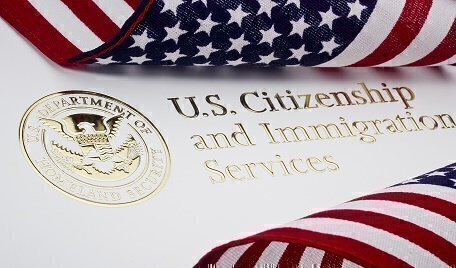A federal judge in Hawaii, acting within hours after holding a hearing on Wednesday morning, strengthened a nationwide ban he had imposed earlier this month on enforcement of the revised order by President Trump to limit immigration. U.S. District Judge Derrick K. Watson converted a temporary restraining order into a more binding and longer lasting order — a preliminary injunction.
 His order is broader than one adopted by a federal judge in Maryland, which the Trump Administration is now contesting in the U.S. Court of Appeals for the Fourth Circuit. That order blocked only the 90-day suspension of entry into the U.S. of any foreign nationals from six Mideast nations. Judge Watson’s order stops both that part of the Trump order and a 120-day suspension of entry of any refugee from anywhere in the world.
His order is broader than one adopted by a federal judge in Maryland, which the Trump Administration is now contesting in the U.S. Court of Appeals for the Fourth Circuit. That order blocked only the 90-day suspension of entry into the U.S. of any foreign nationals from six Mideast nations. Judge Watson’s order stops both that part of the Trump order and a 120-day suspension of entry of any refugee from anywhere in the world.
The Trump Administration formally opened its appeal of Judge Watson’s new order on Thursday night by filing a notice that it will take the case to the Ninth Circuit Court. That is the same appeals court that refused to allow the Administration to enforce the original version of the presidential executive order. It was in response to the Ninth Circuit Court that presidential aides cast aside the original order and issued a revised version, keeping the two main features that it cannot enforce.
Judge Watson ruled that the state of Hawaii and the imam of a mosque had shown “a strong likelihood” that, when their case reaches a final point, the Trump order will be declared to be an unconstitutional form of discrimination against Muslims based on their religion. The injunction he issued will remain in force until he decides that ultimate question — unless his order to put on hold or struck down by a higher court.
The Maryland judge’s more limited order is also in the form of a nationwide injunction and it, too, is based on the view that the Trump order targeting the six Mideast nations is likely to be ruled to be an anti-Muslim restriction.
Either the Hawaii case or the one originating in Maryland, or both of them, are likely to reach the Supreme Court after the two appeals courts have decided the government appeals.
Although the Trump Administration would have the option of trying to bypass the appeals court level and ask the Supreme Court to take up the issue directly, it did not attempt that in the Maryland case. Government lawyers have vowed to appeal the kind of order that Judge Watson issued on Wednesday, but have not yet disclosed what procedure they will use. Under federal court rules, an appeal musr be pending in an appeals court before an attempt to skip that level can be attempted.
The Honolulu judge, in a 24-page opinion, said that he has the authority to convert his earlier TRO into an injunction if the circumstances in the case had not changed between the two orders. He noted that he had found in issuing the first order that the Administration had not shown that the Trump order had a non-religious purpose. Since government lawyers had offered “no new evidence contradicting” his earlier finding on the point, “there is no reason to disturb” his earlier view.
He rejected the administration’s renewed argument that a judge could only look at the text of the presidential order to see what its purpose was, and thus could not look outside the document at repeated statements made by the President and several associates suggesting that the Trump initiative was designed as a “Muslim ban.”
“No binding authority,” the judge wrote, “has decreed that Establishment Clause jurisprudence ends at the Executive’s door.” He noted that every court that has examined the Trump orders under the First Amendment religion clauses has looked outside the actual texts of the two orders.
From the very beginning of the White House process of writing the immigration restrictions, Judge Watson declared, officials have created a record that is “full of religious animus, invective and obvious pretext….It is no wonder that the government urges the court to altogether ignore that history and context.”
As a judge, he wrote, he “will not crawl into a corner, pull the shutters closed, and pretend that [he] has not seen what [he] has.”
He did say that he was only making a preliminary judgment on the religious bias point, and suggested that the government had not forever tainted potential action on immigration restrictions, but he said the government’s actions between issuing the original and revised versions of the executive order did not represent significant changes.
Finally, the judge turned down a government request to block only the suspension of immigration from the six listed nations, concluding that “the entirety of the executive order runs afoul” of the Constitution’s ban on religious favoritism.
The judge said he would deny any request by the government to put his order on hold during an appeal, so if the government wants such a postponement it must ask the Ninth Circuit Court.
Legendary journalist Lyle Denniston is Constitution Daily’s Supreme Court correspondent. Denniston has written for us as a contributor since June 2011 and has covered the Supreme Court since 1958. His work also appears on lyldenlawnews.com.







